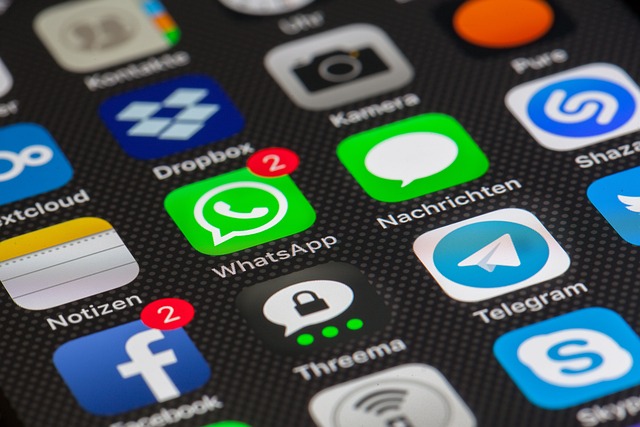TikTok, Facebook, Instagram…not all apps are huge time-sucks designed to tempt you down an endless rabbit hole. Some of them can be genuinely useful and positively impact your life. If you’ve got ADHD (Attention Deficit Hyperactivity Disorder), you could benefit greatly from an ADHD app.
Downloading an app isn’t going to cure your condition — but it could go a long way to helping you manage your symptoms and improve your life. A combination of therapy and medication is often the best way to cope with your symptoms, but not everyone has access to these two things.
The following apps can help you deal with all kinds of ADHD symptoms, whether you have the predominantly inattentive version, the predominantly hyperactive-impulsive version, or the combined version.
They can help you manage distractions, enhance creativity, manage time, get more sleep, manage information, and be more productive.
A quick look at the 7 best ADHD apps
- Best for focus: Focus@Will
- Best for time management: OnceHub
- Best for multitasking management: Freedom
- Best for reducing overwhelm: Remember the Milk
- Best for taking and organizing notes: Evernote
- Best for composing and scheduling emails: Boomerang for Gmail
- Best for file keeping/storage: Dropbox
Focus@Will
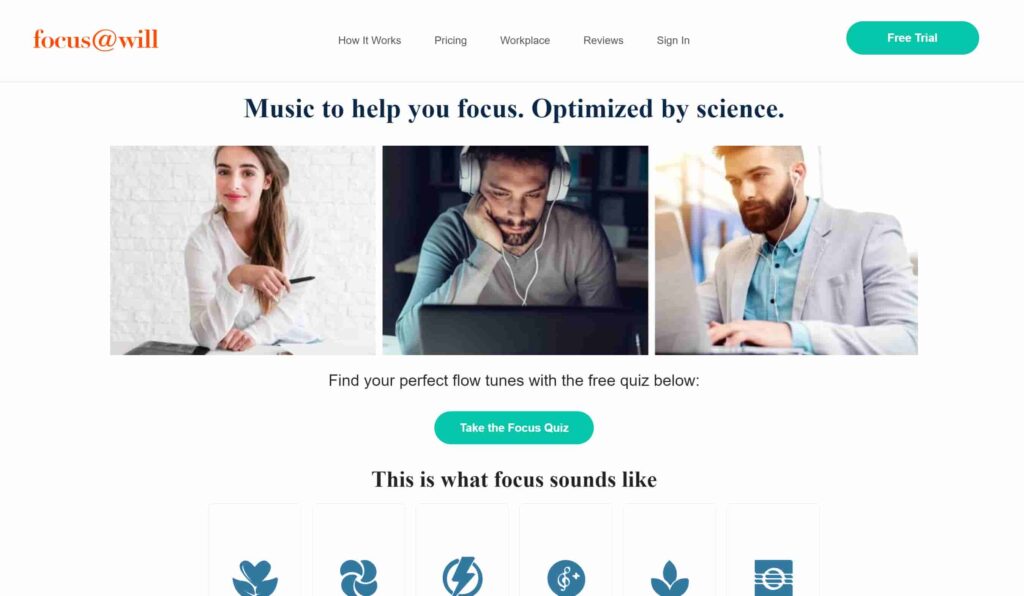
Focus@Will uses specially-engineered audio with frequencies that are similar to human voices removed. We typically find these frequencies distracting, therefore listening to music with them removed helps us focus and get more done.
“Research showed ⅔ people like to listen to music while they work or study, but it’s difficult to find and manage sounds that consistently work well. So we created a new neuroscience-based music service that helps increase your focus by reducing distractions, energizing you and helping you hit those critical deadlines.” – Will Henshall, CEO/Founder
OnceHub
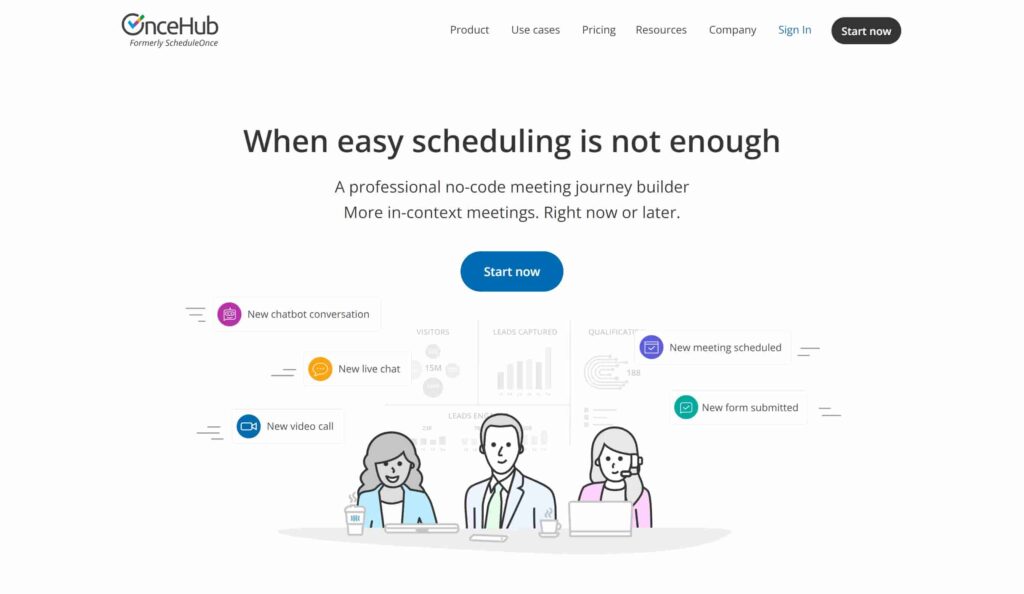
OnceHub encourages you to better prioritize your time and the tasks you manage each day. It integrates seamlessly with Google Calendar and helps you avoid snafus like double-booking clients and missing meetings.
“OnceHub makes them more efficient in their scheduling. They can have more meetings. Making meetings means they make more money. It makes them more disciplined in keeping their calendar.” – Rami Goraly, CEO/Founder
Freedom
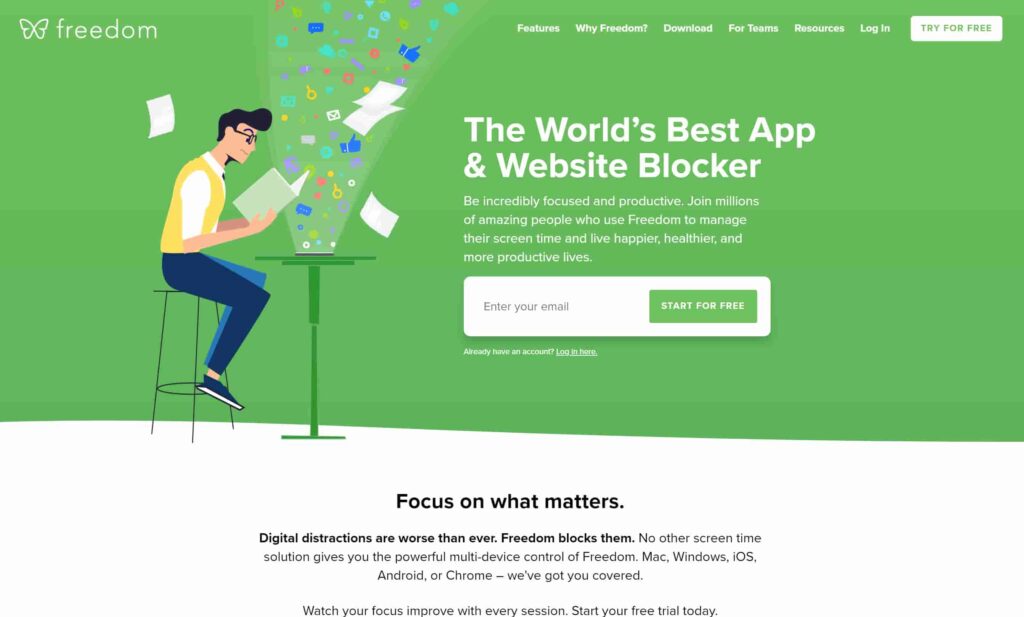
Freedom allows you to set up a weekly schedule with the days and times you want it to work. During those times, the app blocks your internet access, forcing you to focus on the task at hand.
In response to the question, “What fact, statistic, or research about distractions or multitasking do you find most astounding?”, Fred Stutzman, CEO/Founder of Freedom, responded:
“Two things resonate with me – the first is Gloria Mark’s finding that it takes over 20 minutes to recover from a distraction. When you think about all of the distractions that you experience during the day, it is hard to find time for real focus without first mindfully managing distractions. The second comes from research on task switching; we’ve known for a long time that multitasking increases cognitive load, which reduces efficiency. And now we see that the simple existence of alternatives – being able to switch to that Twitter tab, or check the news – increases cognitive load. Modern computing is this perfect storm of distraction – imagine what we’d get done if we worked at our potential?” – Fred Stutzman, CEO/Founder
Remember the Milk
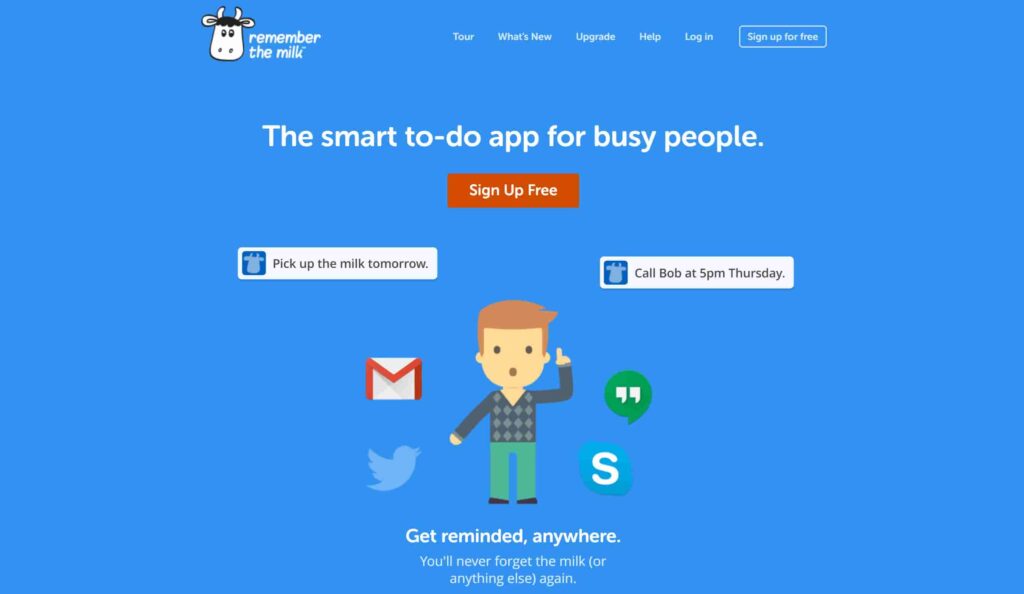
https://www.rememberthemilk.com/
If you frequently feel overwhelmed with everything you’ve got to do, Remember the Milk can provide a sense of calmness and organization. You can assign due dates and reminders for all kinds of tasks and include extra info, such as locations, passwords, and details to help you complete them.
“Remember the Milk (RTM) originated because we were hopelessly disorganized and fed up with constantly forgetting things, including the milk. So, we decided to build a web app to help us remember stuff. RTM was originally intended as something for just the two of us [myself and co-conspirator Omar Kilani], but we decided to put it on the Interwebs in case others found it useful too. We launched in October 2005, and it kind of just grew from there!” – Emily Boyd, Co-founder
Evernote
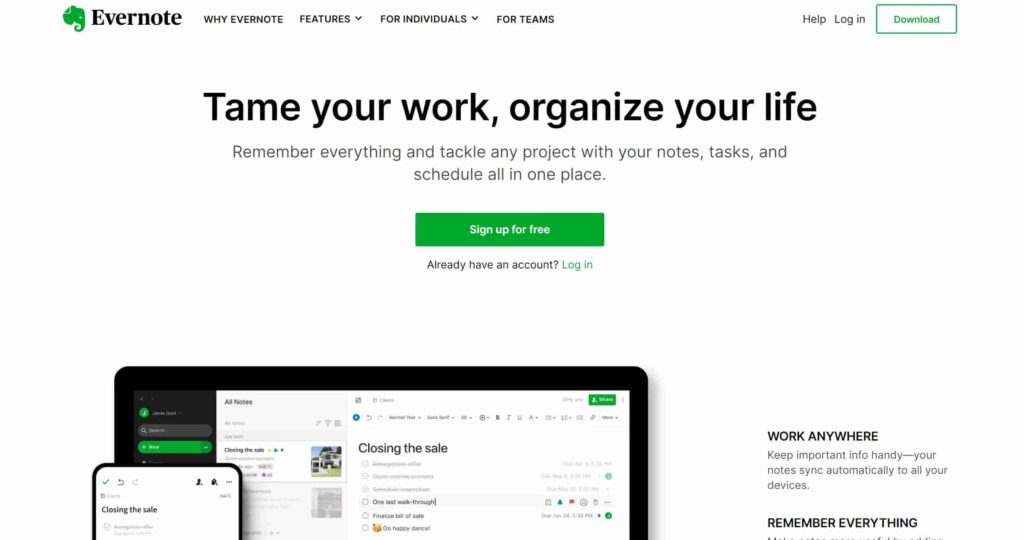
Evernote allows you to capture information, categorize it using detailed tags, and store it in notebooks in a way that makes sense to you. It helps you hold onto important information and quickly find it when you need to.
“Can you imagine a smart guy with a bad memory? When you can’t remember somebody’s name, you look stupid. Memory and smartness are integrated. We all have hundreds of thousands of pieces of information, but it’s useless if we can’t find any of it. In business, the worst thing we can say is, ‘Oh, I’m sorry, I forgot your name.’ This is a product I need myself.” – Stepan Pachikov, Founder
Boomerang for Gmail
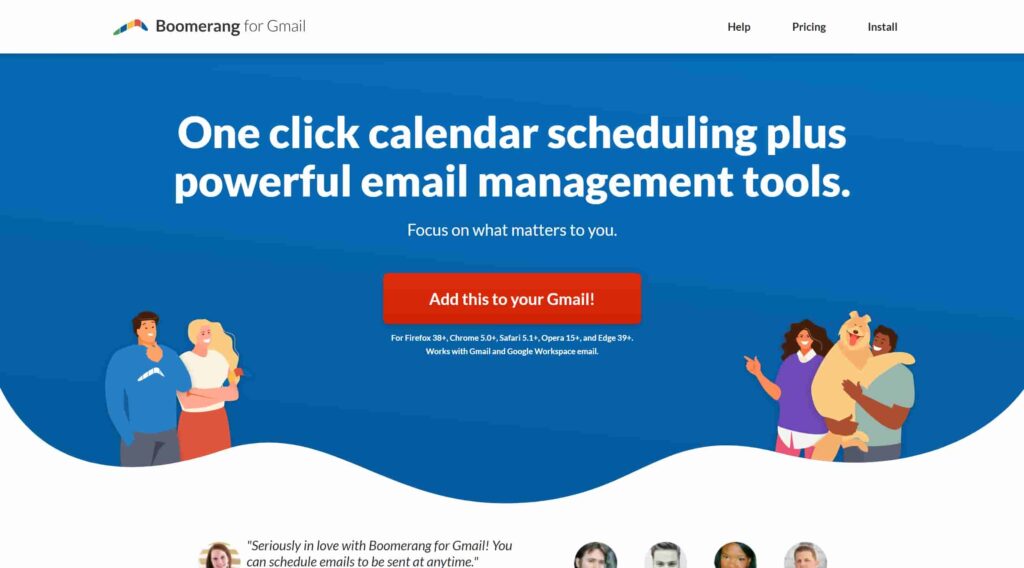
https://www.boomeranggmail.com/
An excellent way to work through your to-do list at any time of day, Boomerang for Gmail lets you compose emails and schedule them to be sent at the optimum time. You can also find out if/when the recipient opened your message.
“Having Inbox Zero itself is not a very sustainable goal; you’re just continuously putting energy into processing junk, and that takes so much of your mental energy throughout the day. I don’t want to use [the morning] up making decisions on email.” — Aye Moah, Founder
Dropbox
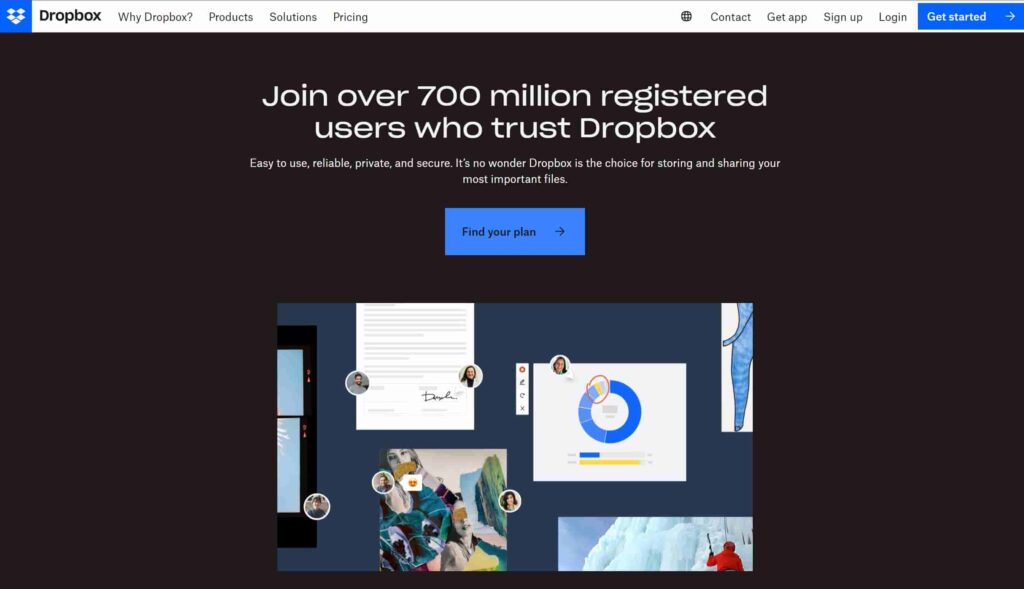
A cloud-based storage system, Dropbox lets you store all kinds of digital files in one place online and access them from anywhere with an internet connection. It also lets you send large files that are typically too big to send via email.
“I was sick of carrying a thumb drive around and wanted to be able to access my files from anywhere. One day I started writing code to solve this problem for myself, and it was quickly clear that lots of people had similar issues and could benefit.” – Draw Houston, CEO/co-founder
Need more help?
If you’ve tried ADHD apps and other at-home solutions to improve your ADHD without any success, it may be time to seek professional help. Make an appointment with one of our Cyti therapists and get back on track to taking back control of your life.
They’ll be able to help you determine your biggest problems and put together a step-by-step plan to help you better manage your life. By developing useful skills and techniques, you’ll be able to cope with your symptoms and improve your overall quality of life.
About the author: Krystie Hudson
Krystie’s favorite types of therapy to use with her clients are EMDR (Eye Movement Desensitization and Reprocessing), DBT (Dialectical Behavioral Therapy) and SFT (Solution Focused Therapy). She also incorporates Cognitive Behavioral Therapy and Internal Family Systems with clients as needed. She prefers to work with clients ages 14-100. She is especially skilled with trauma and parenting problems/support, family issues.


